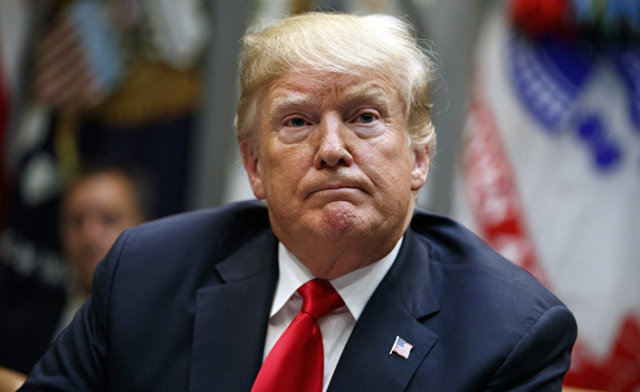He considers the bill a "gift" to Russia and China
washington. December 23. INTERFAX-US President Donald trump on Wednesday used his veto power against the defense budget bill, which was previously approved by the US Congress.
"I am returning the document to Congress without my signature," trump was quoted as saying in a White house statement.
The defense budget in its current form, trump called "a gift to China and Russia."
"Unfortunately, the law does not include critical national security measures, includes provisions that offend our veterans and the history of our armed forces. The proposed measures contradict the efforts of my administration aimed at ensuring that the interests of our country come first in matters of national security and foreign policy," the President said in a statement.
Trump has repeatedly warned of plans to use a veto on the bill.
Earlier, both houses of Congress approved this project, and-by an overwhelming majority. This means that now, after trump vetoed the document, congressmen can still get approval of the draft defense budget.
The bill provides for $ 740.5 billion in funding for the Pentagon and defense and security programs through the U.S. Department of energy.
In addition, the bill includes provisions to tighten us sanctions against the Russian pipeline projects "Nord stream 2"and" Turkish stream". In particular, sanctions are planned to be imposed for facilitating the sale, lease or provision of pipe-laying vessels for the construction of gas pipelines, providing insurance and reinsurance, as well as services or premises for the technical modernization of vessels related to the construction of the gas pipeline.
In addition, the document implies the introduction of sanctions against Turkey for the purchase of Russian s-400 air defense systems. In particular, the President is ordered to impose "five or more sanctions" against those Turkish officials who participated in the process of acquiring the S-400 within 30 days after signing the law on defense spending.
However, trump's Objections to the bill are not related to these sanctions. In particular, he is fighting for the repeal of section 230 of the telecommunications act of 1996, which exempts Internet platforms from legal liability for posting user content.

